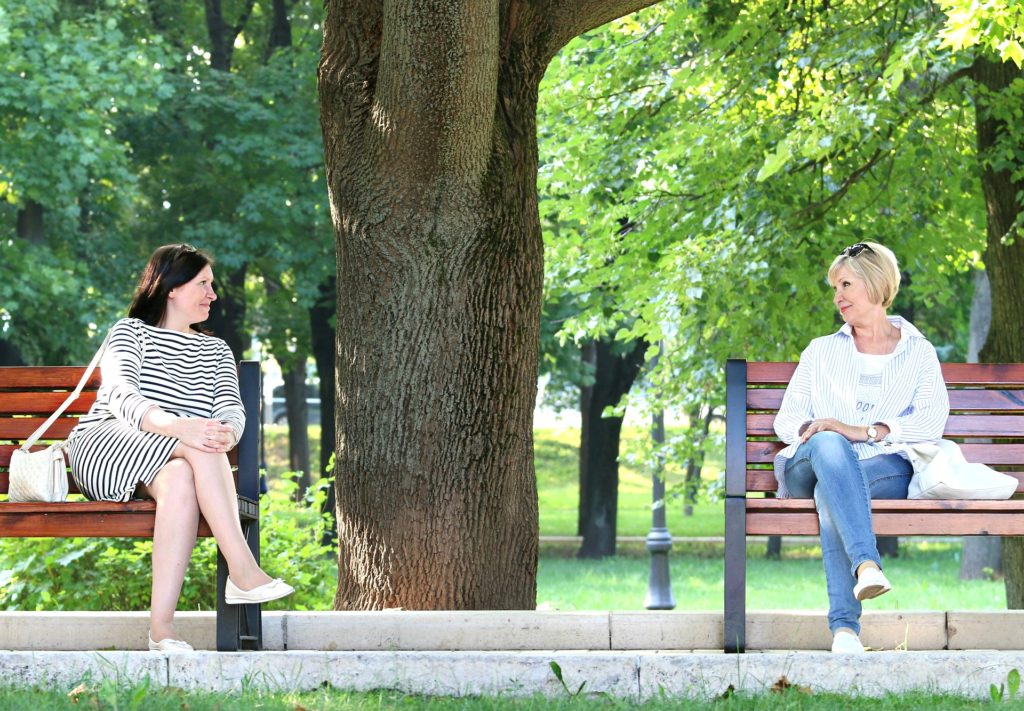Here’s a question
When did you last get to know someone new? No, I don’t mean the last time a new colleague arrived at work and you had to show them where the teabags and kettle were kept. Or the last time you went on a date with someone you matched with on a website. Or even the last time you found yourself sat next to a friend’s friend at a party. I mean really got to know them. Sat alone with them and asked them where they went to school, what food they hate, what the most exciting thing was they have ever done, and why they smile when they talk about art, and discover what an awful driver they are but what a splendid cook. That kind of getting to know. The kind that takes time.
We don’t do it very often, really, most of us. It’s an activity that takes several things we like to tell ourselves we don’t have: time and courage. The time doesn’t necessarily have to involve you in the same place together, of course; it might be the time to write emails or letters, the time to speak on the phone. The courage, though, is pretty essential. It’s the courage to answer questions that are asked of you, and the courage to ask those questions back. It’s taken me a long time to work out that I find the latter of those far more difficult than the former – perhaps that’s why I’m now so enjoying the opportunity to interview musicians for public events. It’s an excuse to legitimately ask questions of someone, when I’d otherwise feel shy and like I was prying.
The irony, of course, is that as a historian, I ask questions of people all the time. It’s just that those people are usually dead, and I’m asking the questions of books, not living, breathing humans. But now and again, I have found myself able to overcome the shyness of posing my own question marks, and it’s almost always been worthwhile. This is how we make the best friends of our lives, and how we find partners too. It can also provide the most amazing windows onto lives completely unlike our own, either distantly removed in cultural terms, or perhaps allowing us to learn from someone of an entirely different generation.
In the past few weeks, I’ve been pondering some of the ‘getting to know you’ chats I’ve been fortunate enough to have. With a very distinguished scholar, now in her nineties, who knew so many fascinating musicians and writers and was willing to share some of her stories over lunch. With someone I’ve known for years, since he was a small boy, now a brave and tremendously talented adult who is finding their identity in an entirely new way and considering the rest of their career. I’ve met other people too, people I’ve not had the chance to get to know so well yet, some of whom I’d love to speak to more and get to know better.

What slightly concerns me, though, is how few opportunities most of us get to explore the worlds of the people we encounter. A great many conversations about important (and often divisive) topics never seem to happen because we are afraid to ask questions of each other. I include myself in this! But I think it’s worth trying to find that bravery to allow us to try: religion, politics, racial differences, sexuality and gender, heck, even just what you mean when you give someone your job title and what your day-to-day life looks like as a result. Of course those conversations might leave us realising that we hold very different views from each other, and behave differently from our interlocutors. But if we never ask the questions at all, we are effectively choosing ignorance over the chance to better know and understand.
Also, finding that time and courage can lead us to amazing stories that are held, like the most precious treasure, by people who will never write them down and who can tell us about those already dead, or in danger of being forgotten, or of moments that are actually not all that remarkable at all in the grand scheme of things but matter to them. I’ve been reading Claire Tomalin’s superb biography of Katherine Mansfield this week, and whilst the documentary material available is of course invaluable for the research of such volumes, it’s striking how often information comes from conversations held with those who knew Mansfield (including previous biographers). These gems are only saved if we actually talk to each other. And face to face, it must be said, is still the best way. No bad Skype connections, no text message telegraphese. Just speaking together, interrupting each other, suddenly thinking of something else to ask, or being struck by the people walking past, or the light in the cafe, or how disgusting the cake is… it is the real shared experiences of being together that help us learn about each other. That, and asking questions. I owe so very much to those who have shown me how to be curious and polite in putting forward all my queries – still a skill I’m working on, but one that has already brought me the most amazing stories and insights from the people I’ve dared to speak to. I can’t recommend it highly enough.

